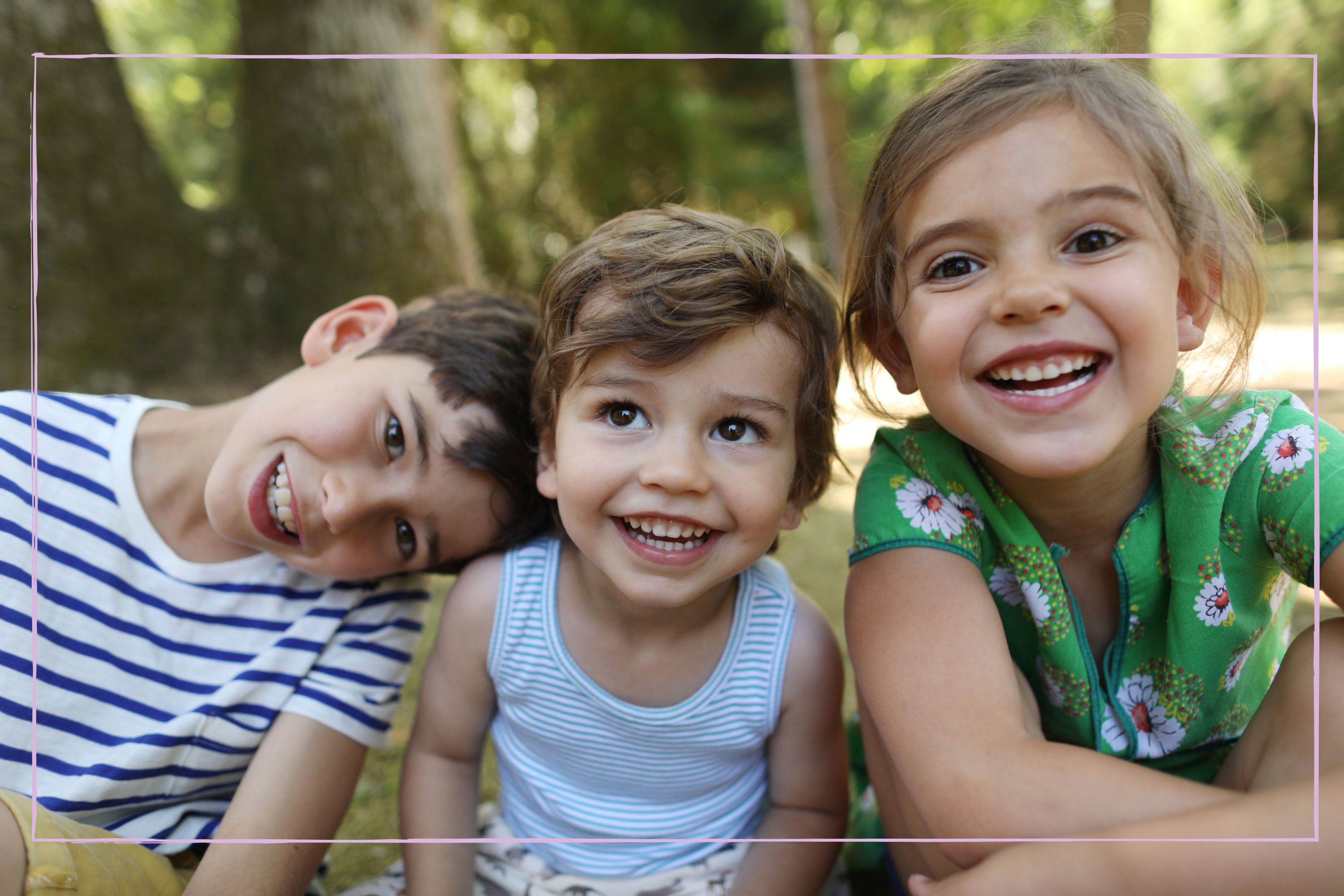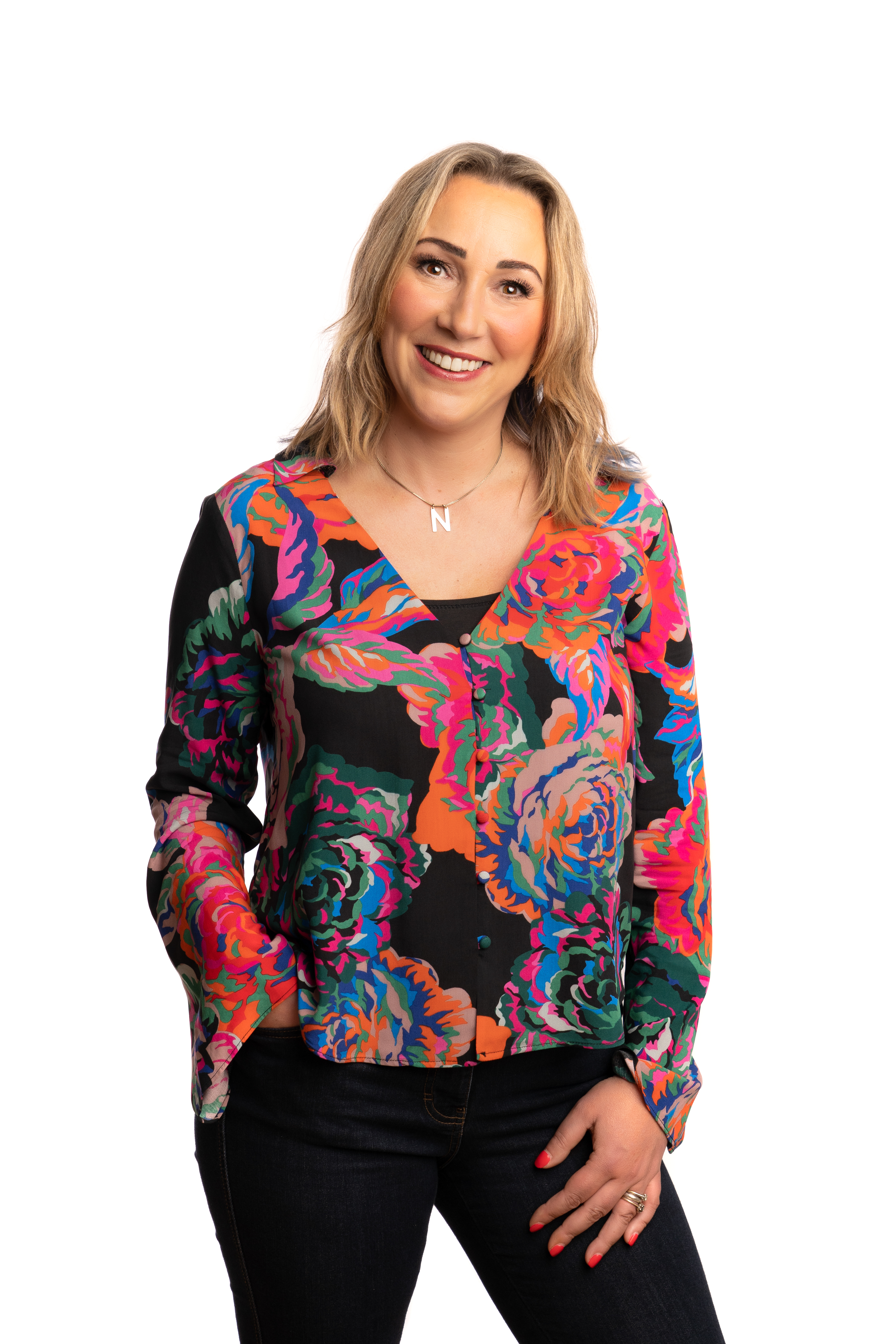5 traits shared by kids with 'youngest child syndrome' (and they’re not what you’d think)
Experts share their thoughts on the traits


Five surprising traits have been identified in kids with 'youngest child syndrome,' and our experts share their thoughts on the study and why the last-born sibling might develop them.
There's a lot to be said about the order in which you were born, affecting the person you and your siblings turn out to be. Eldest daughter syndrome sees unnecessary burden placed on first born daughters, although this could be offset when they learn oldest siblings tend to earn more than their younger counterparts. There's no escape for singletons either, with myths of only children constantly needing to be debunked.
Now the attention has fallen on youngest children. Research has identified five key traits thought to be shared by youngest children, and they're quite surprising. To understand more about the findings, we spoke to Nicola Vanlint, a BACP accredited counsellor and therapist, and Heidi Soholt, BACP accredited children and young person psychotherapist.
Heidi tells us "There is interesting research on birth order which has led to theories about its influence on personality. The youngest child is often born into an environment that looks very different to the oldest. First time parents tend to me more anxious and this can affect how they interact with their first born. By the time another child or children come along they are often able to take a more confident approach, and frequently have less time to focus on their new child.
"This means that younger children come into an environment that is busy, especially if older children are still young, and have to learn to fit in. This could be part of the reason they can be resilient individuals – less attention means learning to do things for yourself. Having older siblings often exposes the youngest to a fair degree of rough and tumble too – another factor in developing resilience."
Nicola and Heidi share their thoughts on the findings of the study, by taking a close look at each individual trait.
5 traits shared by youngest children
1. Risk taking
Nicola tells us "Alfred Adler, a prominent psychologist, theorised that birth order significantly influences personality. According to Adler, youngest children often feel a need to differentiate themselves from their older siblings. This drive for distinction can manifest as risk-taking behaviour, as they seek unique experiences to carve out their own identity."
GoodtoKnow Newsletter
Parenting advice, hot topics, best buys and family finance tips delivered straight to your inbox.
She also shares that Parental Investment Theory has an impact on this, telling us "As parents gain experience with older children, they might become more relaxed and permissive with the youngest child. This relaxed parenting style can encourage the youngest child to take more risks, feeling assured of parental support."
2. Entrepreneurial Mindset
Nicola shares "Albert Bandura’s social learning theory states that people learn behaviours through observation. Youngest children observe the successes and failures of their older siblings, learning what works and what doesn’t. This vicarious learning can foster an entrepreneurial mindset, as they are exposed to a variety of strategies and outcomes."
Heidi adds "Early independence could be a factor in developing an entrepreneurial mindset. Younger children are often exposed to socialisation from an early age. Their older siblings may bring friends home to play, and they’re often brought along to school pick-ups and extra-curricular activities older siblings are involved in. Younger siblings can often learn from older siblings – how to play and socialise, and tend to want to copy them. This can help foster good social skills from a young age."
3. Prosocial behaviour
Nicola tells us this trait is likely to have roots in attachment theory. She says "John Bowlby’s attachment theory emphasises the importance of early relationships in development. Youngest children often receive considerable attention and care from parents, caregivers and older siblings, which can result in secure attachment styles. Securely attached children are generally more prosocial, displaying empathy and strong social skills."
She continues to explain the impact of Social Exchange Theory, adding "This theory suggests that social behaviour is a result of an exchange process aiming to maximise benefits and minimise costs. Youngest children, who are often nurtured and supported, might learn to reciprocate this care, developing prosocial tendencies."
4. Resilience
Heidi shares her thoughts on this, telling us "Youngest children need to find a ‘niche’ within the family. All children are driven to seek their parents’ attention – and can come up with positive and negative ways in which to do this. If an older child has already taken up the ‘dutiful, conscientious’ slot, a younger may be drawn to less positive behaviour in a bid to stand out.
Another factor could relate to youngest children being brought up in more confident environments than the first born. As children will absorb tensions and emotions in their environment, this could make them more confident individuals generally – leading to a less cautious approach to risk and more resilience."
Being spoiled
Heidi explains this, saying "Youngest children are more prone to being spoiled – and this can be heightened if there is a large age gap between children. Parents will often want to hold on to their ‘baby’ – the warm glow that comes from feeling needed and cherished – and if you’re also parenting a teenager then this will be even more of a temptation!
"While younger children can be physically demanding, they are often less emotionally tiring than teenagers. It can be challenging not to want to do things for your youngest, in a bid to keep them dependent. It can also be difficult to face up to how quickly children develop and grow, so spoiling them by lowering expectations for independence/behaviour can be tempting. The youngest can also be regarded as a parent’s ‘last chance’ at parenting which can lead to overcompensating for perceived ‘mistakes’ made with older children and more scope to spoil them."
"It can also be difficult to face up to how quickly children develop and grow, so spoiling them by lowering expectations for independence/behaviour can be tempting."
Heidi Soholt
What can people with 'youngest child syndrome' do about it?
Heidi shares "Being the youngest child can be frustrating. Watching your older siblings enjoying more freedom and doing things you’re not allowed to do can be hard. As an adult you can also struggle to be taken seriously by parents/siblings used to dismissing your views because you’re the baby in the family. If this is an issue, then you can help change perceptions through challenging family beliefs and by demonstrating your maturity though your behaviours."
She concludes "Try to guard against slipping into familiar roles if this is not serving you well, however comfortable this may feel. Push back if you feel parents or older siblings are dismissing or disrespecting you - a firm but polite approach is useful here. Remember it may take some time to change long held perceptions, acknowledge this with your family if need be. Try not to take it too personally if your family likes to think of you in a particular way – their perceptions are more about them than you. They may struggle to see you and your abilities in a realistic way, due to their own issues."
Science suggests kids who fight with their siblings fare better in life, and sister relationships are said to be the most positive. If you think you're the favourite child, we share a psychologist's thoughts on this.

Nicola Vanlint is BACP accredited counsellor and therapist, and founder of the Wellness Rooms in Grenwich, London - a small group of associate cognitive behavioural therapists and EMDR (eye movement desensitisation and reprocessing) practitioners specialising in anxiety, depression, stress and trauma.

Heidi Soholt is a highly experienced BACP accredited psychotherapist who specialises in helping with children and adults overcome a wide range of issues - including anxiety, low self-esteem and peer difficulties. Heidi has a private therapy practice based in Stirling (Scotland) but also provides remote online support to clients worldwide. She is also a school counsellor and works with children aged 4 to 11. Heidi takes a child-centred, play based approach in order to support the children she works with. She also uses an integrated approach in her counselling - drawing on Cognitive Behaviour Therapy (CBT), Acceptance and Commitment Therapy (ACT), Person-Centred and creative approaches. Heidi is also trained in EMDR.

Lucy is a mum-of-two, multi-award nominated writer and blogger with six years’ of experience writing about parenting, family life, and TV. Lucy has contributed content to PopSugar and moms.com. In the last three years, she has transformed her passion for streaming countless hours of television into specialising in entertainment writing. There is now nothing she loves more than watching the best shows on television and sharing why you - and your kids - should watch them.